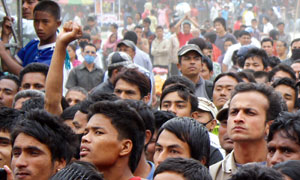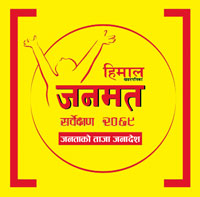 ANURAG ACHARYA |
Our netas often say what they don't mean, but every so often when they actually mean what they say people don't trust them. No one believes a compulsive liar, even when he is telling the truth.
For the last three weeks, top party leaders have been in marathon meetings and when ambushed outside, their general refrain is: "We have once more agreed to agree." Confronted by a whole spectrum of identity pressure groups, the parties are trying to strike midnight deals behind closed doors. They seem oblivious to the fact that the nation has moved beyond formal, dry and institutionally structured political debate and the electorate is getting polarised.
It is an irony that parties which were once so obsessed with majoritarian politics are now desperately trying to forge a 'consensus' because they are too scared to find out if they have the required number on their side. In this time of great churning, the only safe bargain for the leaders is to follow the people's aspiration for social harmony, justice and development.
The Himalmedia Public Opinion Survey 2012 shows clearer and more assertive response in favour of a directly-elected executive, and no, people are not scared of a totalitarian dictator taking over. Compared to previous years' polls, the respondents are even bolder in expressing their views, as seen in the very low 'Don't Know/Can't Say' count.
On federalism, the majority of respondents reject ethnicity-based enclaves, but feel there should be some form of affirmative action to uplift the marginalised within inclusive federal states.
 |
Disaggregating this year's poll results also shows people in rural areas, especially the youth, are more positive and feel a degree of change due to improved road access, education, health and drinking water facilities, but there is seething anger among the more educated and professional class who can't find jobs, and whose lives are frequently paralysed by shutdowns, fuel shortages and a tripling of the price of basic commodities in the last ten years.
Angry questions hurled at politicians in public forums and cynical comments in the Kathmandu media (including on the pages of this paper) are results of desperation among the urban educated. But even in these desperate times the people have shown remarkable optimism that the nation will overcome protracted transition post-27 May.
The parties want to form two national unity governments in three weeks. We wish them luck. Is this the time to be haggling over who becomes minister for two weeks, when a constitution needs to be written in that time?
The unseemly political bartering on portfolios has no doubt lowered people's regard for political leaders even further, but they aren't exactly complaining. There is nothing wrong with parties and leaders wanting to be a visible part of the statute drafting as long as they intend to solve problems and not become part of the problem.
But the nation cannot be held hostage to their inflated egos and often undeserving ambitions. Those claiming government leadership and attractive portfolios must first be sure of their own public approval ratings. The thumbs down poll respondents gave those who talk the loudest is an indication that people will now judge the leaders not on the basis of what they say, but on what they do.
Read also:
Voters' voice



